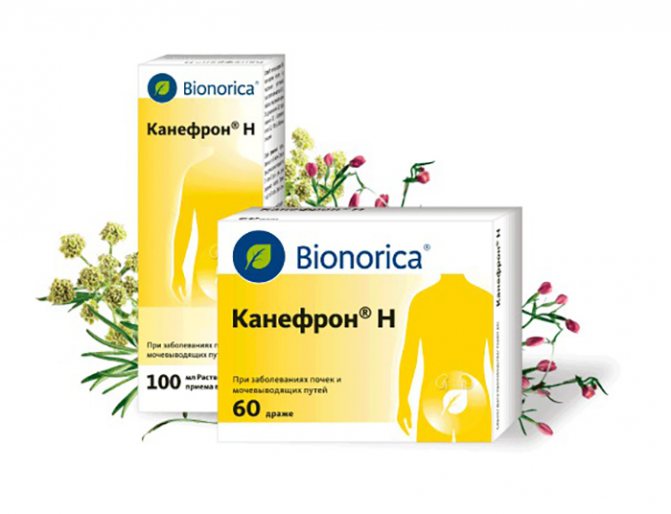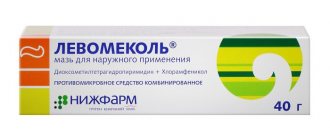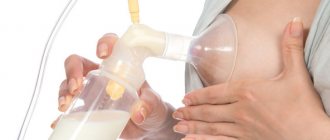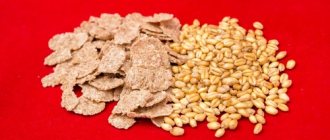The body of a woman who has just given birth is weakened and therefore vulnerable to various types of infectious inflammation. The leader among them are infections of the genitourinary system. Trauma to the birth canal, installation of a catheter during or after surgical delivery, inflammation of the bladder are possible complications during this period.
Since these processes in a woman in labor are accompanied by breastfeeding, it is very difficult to select medications that eliminate the pathology and do not pose a danger to the newborn. These medications include canephron, a phytotherapeutic medicine that is harmless to mother and child. Let's take a closer look at how to take Canephron while breastfeeding.
What is the medicine?
Canephron is a combined herbal preparation developed by the famous German pharmaceutical manufacturer Bionorica. The safety and effectiveness of medicines produced by the company have been proven by leading scientists in Europe and the CIS countries.
The production of canephron is based on the concept of phytoniring - the combination of plant components with modern pharmaceutical innovative technologies, as a result of which safe medicines of the highest quality are produced.
This means that the company carefully controls the process of selecting seeds, growing herbs on its own plantations, processing and vacuum extraction of raw materials, and producing a finished product that meets all quality standards.
Therefore, the question of whether it is possible to drink canephron during lactation disappears by itself. Natural medicine does not pose a danger to mother and baby in the absence of individual intolerance to herbal ingredients.
Release form

Canephron for adults is available in the form of tablets and syrup.
Raising the topic of whether it is possible to take canephron during lactation, experts have proven that it is better to use the tablet form of the medicine, since the syrup is made on the basis of alcohol, and therefore is not recommended for use during breastfeeding.
Canephron during lactation
Diseases of the urinary system worry women quite often. Many encounter them for the first time during pregnancy, and after childbirth, mothers’ condition may worsen. How to treat cystitis or pyelonephritis if you are breastfeeding? Until recently, doctors had one answer to this question: breastfeeding must be stopped and antibiotics taken. And treating cystitis with folk remedies is also not always safe for babies. But today the drug Canephron has appeared in the arsenal of means to combat diseases of the urinary system.
Canephron during lactation
Any problems with the kidneys and bladder are mainly associated with infection. The urinary tract in the female body is such that it is easy for pathogens to penetrate the bladder and then the kidneys. Once you get too cold, you get cystitis.
For a nursing mother, all the “delights” of diseases of the urinary system - pain, swelling, nausea, vomiting and fever - of course, are useless. Today, doctors often prescribe Canephron during breastfeeding for the treatment of infectious diseases of the kidneys and bladder. The advantage of this drug is the plant origin of the main components (centaury grass, rosemary leaves and lovage root).
Canephron during lactation has anti-inflammatory, diuretic and antibacterial effects, relieves spasms of the urinary tract, reduces the level of protein in the urine (with proteinuria), and prevents the occurrence and growth of kidney stones. Canephron is prescribed to nursing mothers in the following cases:
- cystitis;
- pyelonephritis;
- glomerulonephritis;
- interstitial nephritis;
- prevention of the formation of urinary stones.
Can a nursing mother have Canephron?
The advantages of Canephron during lactation are its compatibility with breastfeeding, the absence of contraindications (except for alcoholism and intolerance to components), as well as the possibility of long-term treatment. However, you should not take it yourself: a doctor should prescribe and monitor the use of Canephron during lactation.
The fact is that the herbal components that form the basis of the drug can cause allergies (urticaria, rash, itching, Quincke's edema). Therefore, any side effects when taking Canephron during lactation should be reported to your doctor immediately.
How to take Canephron while breastfeeding?
The drug is available in the form of dragees and solution (water-alcohol extract). According to the instructions, Canephron during lactation is prescribed in the form of tablets: 2 pieces 3 times a day on an empty stomach. During treatment you need to drink plenty of fluids.
Remember that the course of therapy can be quite long - 1-2 months, and to consolidate the positive effect of Canephron during lactation, take another 2-4 weeks.
Related articles:
| Nurofen during breastfeeding Nurofen is very often prescribed to small children if their temperature rises. Therefore, many nursing mothers believe that they can also take baby Nurofen if necessary and it will not harm their baby. Is it so? – Read the answer in our article. | Headaches during breastfeeding Headaches happen to everyone from time to time. A nursing mother will not escape this fate either. Migraines are quite difficult to endure, but many women endure the pain, quite rightly fearing to take the usual pills for such cases because of their baby. Read our article about what mothers should do if they have a headache. |
| Arbidol occupies one of the first places among the popular advertised drugs. Without reading the instructions too much, many rushed to pharmacies to get it, obeying the advice of non-professionals and fashion. It may not harm everyone. But nursing mothers cannot rely on chance. It’s better to find out exactly in our article whether they can take arbidol. | Candidiasis and vaginitis quite often accompany nursing mothers. This is due to frequent stress, fatigue, and insufficient nutrition during this period. In this case, can the mother use terzhinan for treatment? – Our article provides an answer to this question. |
womanadvice.ru
How does the medicine work?
The chemical composition of canephron helps relieve symptoms of inflammation, relieve spasms, and reduce pain. The medicine has the following properties:
- Essential oils extracted from plant components have a powerful diuretic effect. By dilating the vessels of the kidneys, they improve blood supply, while at the same time inhibiting the absorption of fluid and sodium salts, and promote the removal of excess fluid without disturbing the water-salt balance;
- Rosmarinic acid relieves inflammation;
- Has an antibacterial effect, inhibiting the growth and reproduction of pathogenic microorganisms;
- Flavonoids and rosemary oil relax the smooth muscles of the genitourinary system, acting as an antispasmodic;
- Reduces the concentration of protein in urine in renal pathology;
- Increases the effect of antibiotics in the treatment of various infections and inflammations.
During breastfeeding, canephron is often prescribed by a doctor along with other medications. The drug is effective from the first days of use and, as a rule, is accepted by the woman’s weakened body without side effects, as evidenced by numerous positive reviews.
Features of the drug Canephron
Canephron is a herbal preparation that contains several types of plants:
- centaury grass;
- lovage root;
- rosemary leaves.

Each of the components has a beneficial effect on the condition of the kidneys and bladder.
The drug has the following actions:
- diuretic, which helps eliminate infection;
- anti-inflammatory to improve the condition;
- antimicrobial to speed up recovery;
- antispasmodic to relax muscles and blood vessels, as well as improve urination.
The drug is available in two forms: pills and alcohol infusion. A nursing mother can take any type of product, but preference is given to pills, since they do not contain alcohol.
Indications for use

Canephron can be prescribed by your doctor during breastfeeding. During guarding, it helps prevent possible complications. One of the most common diseases when this medicine should be used by nursing mothers is cystitis. It should be noted that the drug can be prescribed to a young mother even if she is prone to developing this disease as a preventive measure.
The dosage and duration of use of the drug, especially when accompanied by lactation, is determined exclusively by the treating specialist. As a rule, the course lasts about six months, since this is the time period the body needs for postpartum recovery.
In addition, Canephron is indicated for:
- pain when emptying the bladder or detecting blood in the urine;
- the presence of kidney stones, accompanied by general malaise;
- pyelonephritis – a kidney disease that is chronic in nature with the aim of facilitating the course of the disease;
- glomerulonephritis is an infectious disease that affects the kidney area.
The possibility of using the drug for preventive purposes is not excluded, and it can be used both independently and as part of complex therapy.
Composition and application
The main active ingredients of the drug "Canephron", which is produced by the German company, are extracts:
- centaury herbs;
- rosemary leaves;
- lovage root;
- rosehip peel.
The medicine is presented in alcohol-based drops and granules. Despite the negligible alcohol content in the drug, released in liquid form, it is recommended to take granules during lactation.
The number of diseases of the urinary system that Canephron helps to cope with includes:
- acute cystitis (inflammation of the bladder is characterized by acute pain during urination);
- pyelonephritis (inflammatory process in the kidneys caused by infection, accompanied by high body temperature, lower back pain, nausea, etc.);
- interstitial nephritis (non-infectious inflammation manifested by pain in the lumbar region, loss of appetite, lethargy, etc.);
- glomerulonephritis (with inflammation of the glomeruli of the kidneys, the amount of urine produced decreases, which leads to the appearance of edema and increased blood pressure);
- deposition of stones (accompanied by pain in the lumbar region, painful urination, elevated temperature; with the disease, the urine becomes cloudy, the presence of blood may be present).
"Canephron" has a complex effect on the body - the drug has a diuretic and antispasmodic effect, is an antimicrobial and anti-inflammatory agent. The drug is used to relieve symptoms of acute inflammatory processes, and also as a means to prevent urolithiasis.

Possible contraindications
As a rule, canephron is well tolerated by both the newborn and the mother during breastfeeding. In some cases, individual intolerance to some of the components is possible. Therefore, the drug is first prescribed in a minimal dosage to further study the reaction of the body of both mother and baby.
Possible negative manifestations include:
- changes in the appearance of the skin in the form of rashes;
- problems with intestinal functionality;
- the appearance of itching.
If such deviations are detected, you should stop taking the drug while breastfeeding and consult your doctor.
Canephron is not recommended for use in peptic ulcers, as well as renal and heart failure. Particular caution should be taken when taking the drug if you have diabetes, since the complex includes glucose and sucrose.
No cases of overdose with this drug have been identified. However, you should not deviate from the prescription prescribed by your doctor.
How to use during lactation?

Readers of Ogrudnichke.ru recommend: - Review of the most popular vitamin supplements for children from Garden of Life Read the article >>> - How can Earth Mama products help young parents care for their infants? Read the article - Dong Quai is an amazing plant that helps maintain youth in the female body Read more... - Vitamin complexes, probiotics, omega-3 from Garden of Life, designed specifically for pregnant women Find out more >>>
Urinary tract infection is a common disease among pregnant women and often causes problems during the postpartum period. The answer to the question whether a nursing mother can take canephron has already been given above. It is this drug that comes to the rescue with such infections, as well as with forced treatment with antibiotics, since it enhances their therapeutic effect.
If a young mother suffers from urolithiasis, she is diagnosed with chronic pyelonephritis or cystitis, then canephron will be an effective addition to the main treatment.
However, you cannot resort to therapy on your own while breastfeeding. Canephron for nursing mothers should only be prescribed by a doctor.
Canephron during breastfeeding is approved by experts even for long-term use. In addition, upon reaching one year of age, the drug is also approved for children, this confirms the safety of the herbal medicine. However, it is necessary to monitor the patient's health status and follow the recommendations of the attending physician.
Canephron and breastfeeding: can it be used and what is special about the drug?
After childbirth, a woman’s immunity is weakened, so it is during this period that the female body is especially vulnerable to the occurrence of viral diseases, the effects of infections and the appearance of inflammatory processes. It should be noted that the health of the newborn child directly depends on the health of the woman. Antibiotics, which are used during the treatment of diseases such as cystitis, pass into breast milk and can cause significant harm to the baby's health. Therefore, earlier, during the treatment of such ailments, when using antibiotics, women had to refuse breastfeeding. But today, during the treatment of such ailments as cystitis or pyelonephritis, safe medications such as Canephron are used.
Attention!
If diseases of the genitourinary system occur, treatment should not be delayed while the baby is breastfeeding. This is due to the fact that the infection that entered the female body and provoked the onset of the disease can enter the child’s body through breast milk. In addition, if inflammatory diseases of the genitourinary system occur in a nursing woman, it is necessary to use traditional medicine methods very carefully. After all, folk remedies that are used, for example, to treat cystitis, can harm the health of an infant.
Inflammatory processes that lead to the appearance of diseases of the genitourinary system are very painful and cause great discomfort to a breastfeeding woman. In order to eliminate inflammatory processes in the body, women are prescribed Canephron while breastfeeding. This drug can quickly and effectively, without harming the health of the mother and child, eliminate diseases such as:
• cystitis; • glomerulonephritis; • pyelonephritis.
Canephron is often prescribed to a nursing mother for the formation of kidney stones. It is worth noting that this medication contains only components of plant origin, which have absolutely no negative impact on the health of the woman and child. It should also be noted that Canephron has absolutely no contraindications for use.
The only exception may be chronic intolerance or an allergic reaction of the body to one of the components that make up this drug. In addition, it should be noted that it is undesirable to drink alcohol while using this drug to treat diseases.
Reception scheme
Often young mothers raise the topic of how to take medicine. Canephron during breastfeeding is used according to the instructions for use of the product contained in the package: 2 tablets 3 times a day.
Experts advise taking the medicine with plenty of liquid, preferably still mineral (not drinking) water. Mineral water enhances the alkaline properties of urine, creating an unfavorable environment for the growth and reproduction of infectious agents and accelerating the process of washing out bacteria from the urinary organs.
A course of canephron during breastfeeding is preferable, ranging from 1 to 2 months according to individual indications, depending on the severity of the pathology. As a prophylaxis for urolithiasis, the drug is prescribed in smaller doses for 2-4 weeks.
Is it possible to use Canephron while breastfeeding?
Thanks to its herbal composition, Canephron can be used to treat the genitourinary system by nursing and pregnant women. However, in rare cases, if a woman is allergic to some component of the drug, the use of Canephron may be contraindicated. Allergies can manifest themselves in the form of rash, itching, urticaria, and Quincke's edema.
Like any medicine, nursing women take Canephron only under medical supervision.
If a nursing woman experiences side effects, it is necessary to urgently contact a doctor for further adjustment of treatment.
I have chronic pyelonephritis. Exacerbation occurs most often in the fall, with the onset of cold weather. I gave birth to my daughter in October, it was still warm and sunny. However, already in November the weather worsened significantly, and despite all my efforts and frugality, pyelonephritis still worsened. When I went to the hospital, the doctor prescribed me Canephron tablets. The only minus of the drug is that the effect and relief come after some time, but the plus is that you can take it for a long period. Canephron helped me. And now, in order to avoid relapses, I take Canephron in the autumn-spring period for preventive purposes.
Directions for use and dosage
Canephron is prescribed based on the patient's age.
Table: single dose of the drug for different age groups
| Age | Dragee, pcs. | Solution, drops |
| Adults | 2 | 50 |
| Children 6–18 years old | 1 | 25 |
| Children 2–6 years old | Not assigned | 15 |
| Children under 2 years old | Not assigned | 10 |
Due to the fact that the solution is based on alcohol, in order to avoid the negative effects of alcohol on the baby, nursing and pregnant women are recommended to use Canephron in the form of pills for treatment. The drug is used three times a day according to the dose indicated in the table, one hour before or one hour after meals. For example, children 6–18 years old take 1 tablet 3 times a day.
It is recommended to swallow the dragee without chewing, with a sufficient amount of liquid (for example, one glass of water). When taking Canephron in the form of a solution, the bottle with the medicine is first shaken, then the required number of drops is dissolved in water, juice or tea to soften the bitter taste, and also washed down with liquid.
During the entire Canephron treatment, you need to drink more fluids to achieve the best effect. Breastfeeding women should choose the optimal amount of fluid consumed per day, at least 1.5 liters per day, to maintain the necessary lactation.
The duration of treatment with Canephron depends on the severity of the disease and is monitored and prescribed by the attending physician. The minimum course of treatment is 2 weeks. Usually, after the acute symptoms of the disease disappear, the drug is taken for some time, about 2 weeks, for prophylactic purposes.
Customer Reviews
In accordance with numerous positive reviews from women on social networks, canephron actually effectively copes with genitourinary infections and kidney diseases. One of the active users of the forum for young mothers claims that only Canephron, which she took while pregnant and after childbirth, helped cope with frequent relapses of cystitis, which had tormented her since she was 15 years old.
Many nursing women suffering from pyelonephritis note that if they take 2-3 tablets of Canephron at the first symptoms of the disease, then within 24 hours the drug will significantly improve their well-being.
However, experts remind that you should not self-medicate. The medicine should be used only as prescribed by the attending physician.
Before taking Canephron, weigh all the possible risks to your health and, accordingly, the health of your child.
Diseases of the genitourinary system during lactation
The most common diseases of the urinary system that are recorded in nursing women are:
- glomerulonephritis;
- cystitis;
- interstitial nephritis;
- pyelonephritis.
The bacteria that cause these diseases penetrate very easily into the weakened body of a woman who is breastfeeding. It's enough to get cold or catch a cold.











